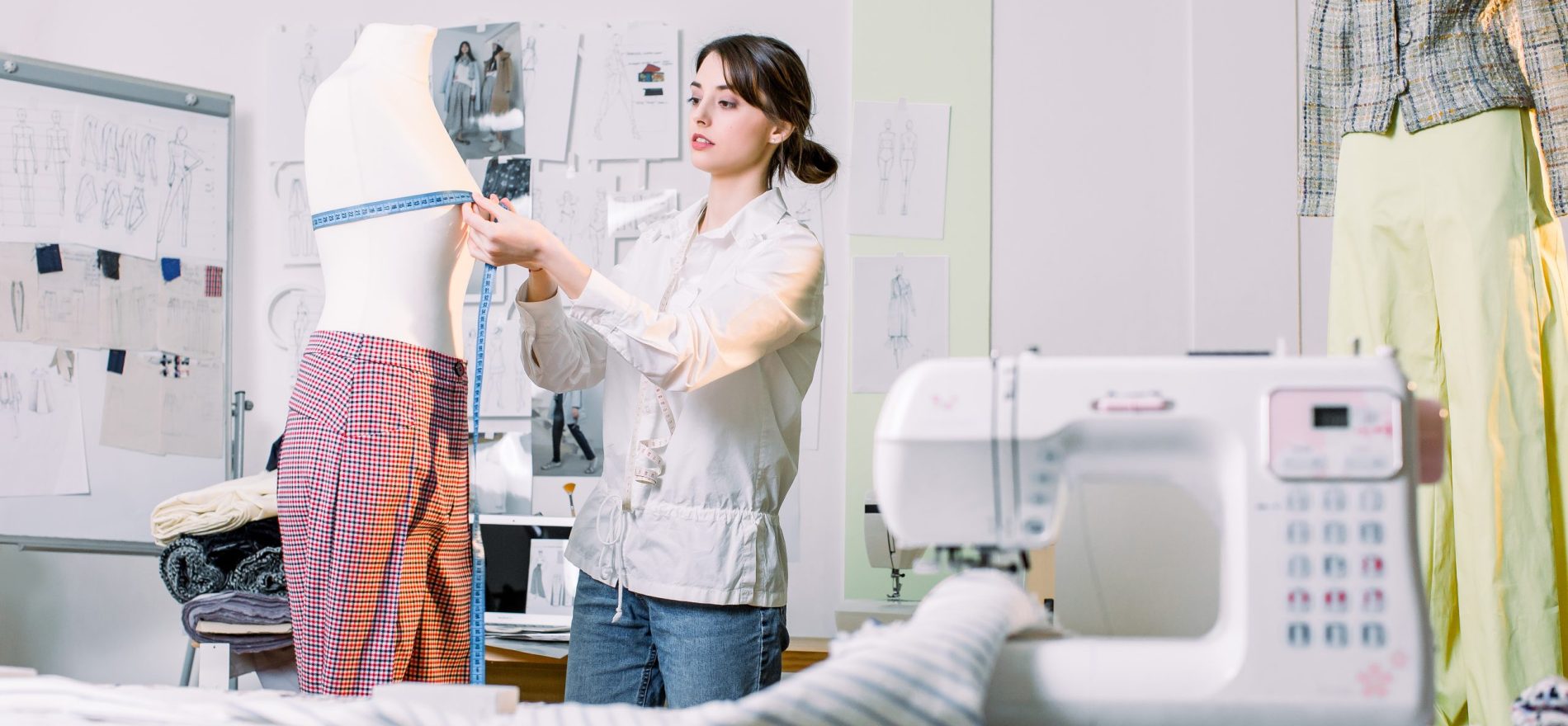Welcome to NTI Institute of Fashion Designing – Your Gateway to Excellence in Textile and Fashion Design Education!
INTERMEDIATE IN TEXTILE AND FASHION DESIGNING
Program Duration: 2 Years
Eligibility Criteria: Matric / O Level
OUR COURSE INVOLVES
- Skill Enhancement: Intermediate fashion designing allows aspiring designers to build on their foundational skills and knowledge. They can explore more complex design techniques, garment construction methods, and pattern-making principles.
- Creative Development: By working at an intermediate level, fashion designers can push their creativity further and experiment with unique designs and styles. This level encourages them to think outside the box and develop their individual artistic flair.
- Portfolio Building: As designers progress to an intermediate level, they can create a diverse and impressive portfolio of designs. This expanded body of work can be beneficial when seeking internships, job opportunities, or admission to advanced fashion programs.
- Understanding Fashion Trends: Intermediate-level designers have a deeper understanding of fashion trends and how to incorporate them into their designs. They can create collections that resonate with contemporary fashion aesthetics.
- Industry-Relevant Projects: Intermediate-level fashion designing often involves more substantial and industry-relevant projects. These projects simulate real-world scenarios, preparing designers for the demands of the fashion industry.
- Hands-On Experience: As designers work on more complex projects, they gain valuable hands-on experience in handling different fabrics, using advanced sewing techniques, and working with intricate patterns.
- Constructive Feedback: At an intermediate level, designers may receive more in-depth feedback from mentors, instructors, or industry professionals. This feedback helps them identify areas for improvement and refine their design skills.
- Professional Networking: As designers advance in their studies or careers, they have opportunities to connect with industry professionals, attend fashion events, and participate in internships, which can lead to potential collaborations and job prospects.
- Enhanced Problem-Solving: Dealing with more intricate design challenges at the intermediate level requires designers to develop stronger problem-solving and critical thinking skills, which are essential for success in the fashion industry.
- Confidence Building: As designers tackle more sophisticated projects successfully, they gain confidence in their abilities and artistic vision. This self-assurance is crucial for thriving in the competitive world of fashion.
Overall, intermediate fashion designing provides a pivotal stage for designers to refine their craft, expand their creativity, and prepare themselves for more advanced opportunities in the fashion industry. It bridges the gap between foundational knowledge and professional expertise, setting the stage for continued growth and achievement in the field of fashion design.

